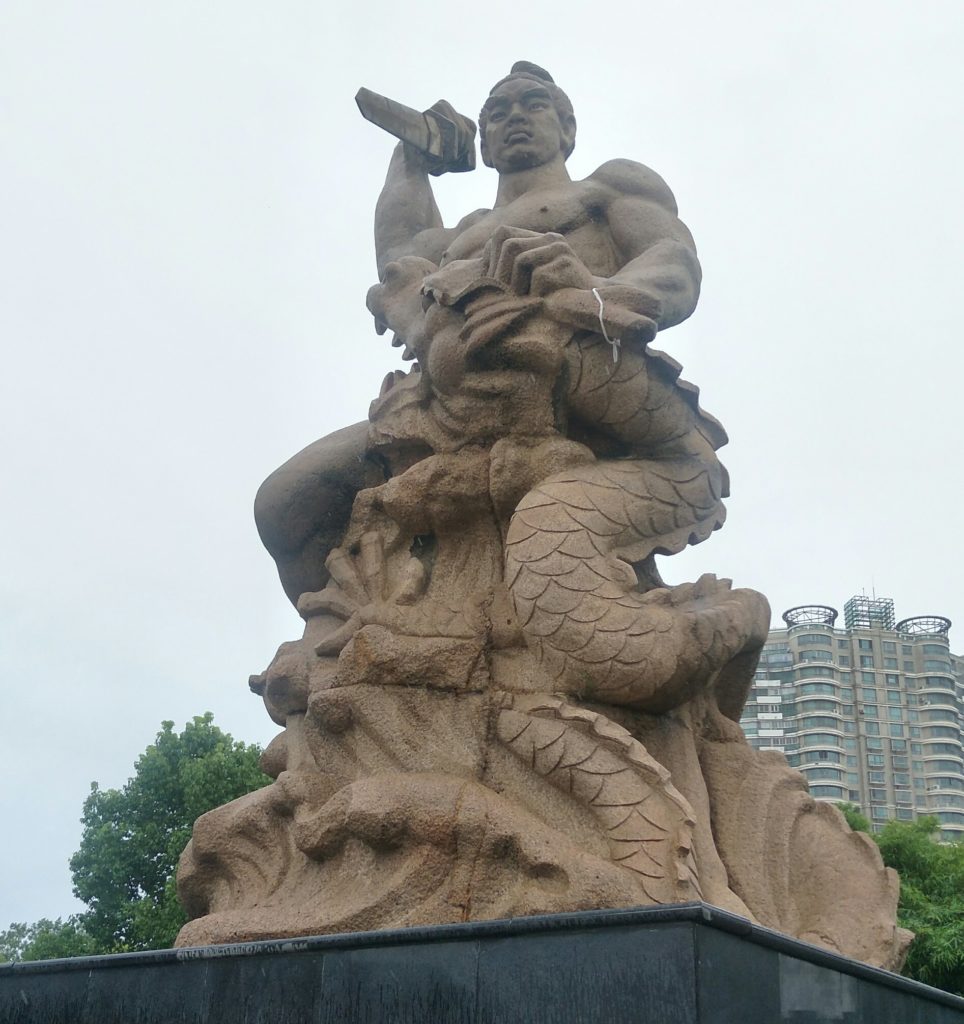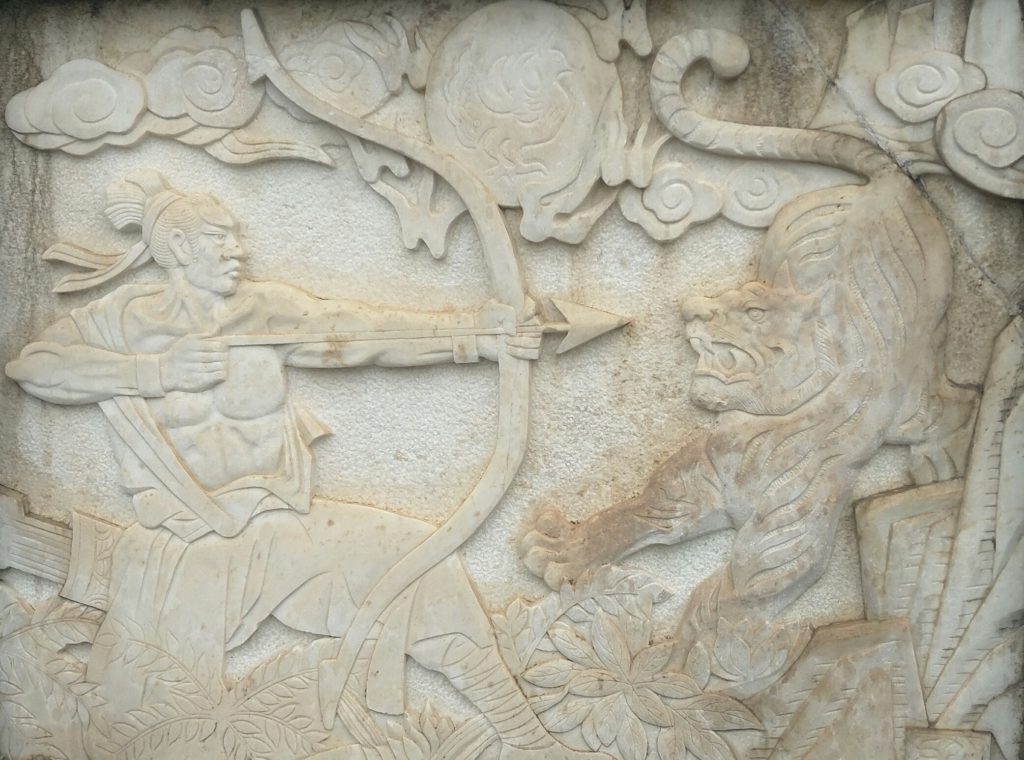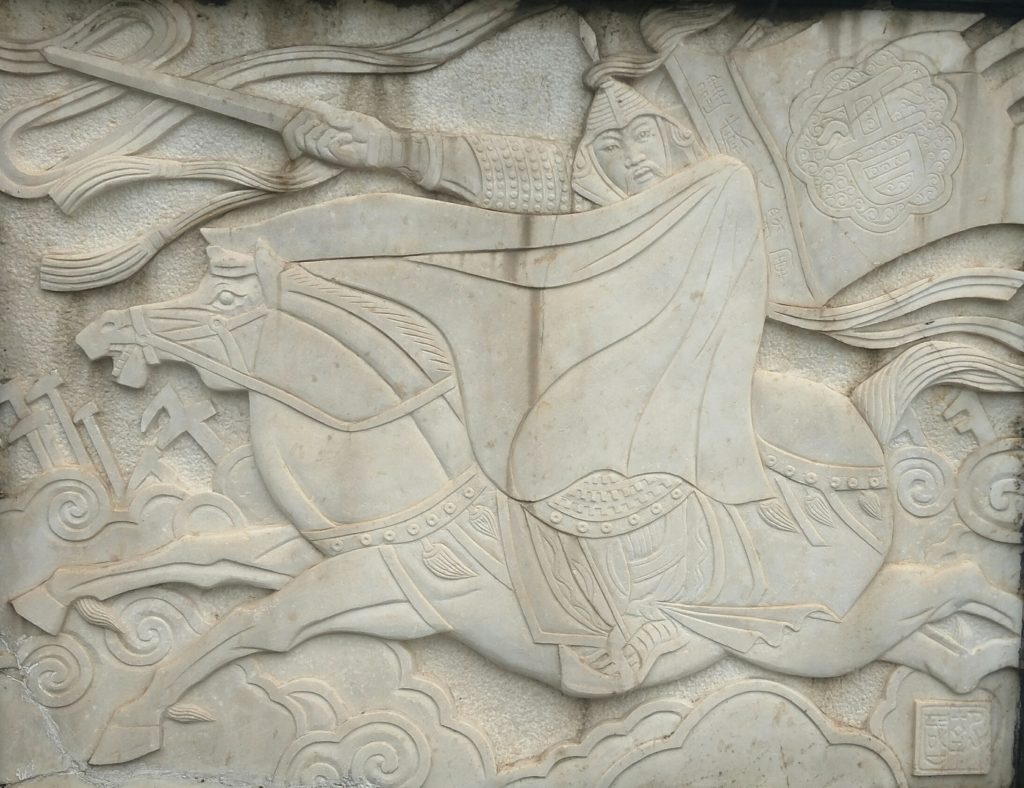
It takes a true hero to admit when he or she is wrong. This not only shows a level of self awareness, but a fundamental sense of humanity. We are not always as great as we secretly — or not so secretly!! — think we are. If we were talking professional wrestling, this would be termed as a “face turn“ — when bad man (called a “heel”) ditches his dastardly ways and becomes beloved for it. In the art of telling stories, it’s much more basic than that; it’s straight up character development. And characters who grow as people are always much more interesting than the ones that don’t.
There is an example of this to be found in Yixing’s local lore. Yixing is one of Wuxi’s two satellite cities. The other, Jiangyin, can be found to the north of Wuxi and along the banks of the Yangtze River. Yixing is to the south and is situated near Lake Tai. At one point, this city actually used to be part of Changzhou, eons ago. It was even referenced by Su Dongpo in an request filed with the emperor. The poet landed in Yixing, and was asking permission to live in Changzhou. There is a monument to this written request in the Xuejia part of Changzhou’s northern Xinbei district.

That’s all well and interesting, but what does that have to do with slaying dragons? After all, the title of this post promises that a dragon gets killed, at some point, right? Yixing was once home to a man named Zhou Chu 周處. In his youth, he was considered a hothead who liked to push other people around — a bully, if you will. He was a man so full of himself, his fellow villagers named him one of the three local scourges. The other two were a tiger and an evil water dragon. Zhou decided to kill the tiger, and for three days, he battled the dragon on Lake Tai.
Upon returning to what would become Yixing with a severed dragon’s head, he learned that his own character flaws were the third and final monster his neighbor’s feared. So, he mended his ways. He went on to become a valiant general who died in battle. Actually, he was sent into battle without enough troops. When asked if he wanted to retreat and flee after his archers ran out of arrows, he responded with something to the effect of, and to paraphrase, “I would rather die serving my country.”

Sure, this is a folk tale that is more the 1000 years old, but it’s still remembered in Yixing. The city’s downtown area has a network of parks built up around a body of water called Tuanjiu 团氿. It is here where a visitor can find a stone statue commemorating this story. It depicts Zhou Chu wielding a story while wrestling and subduing a dragon.
